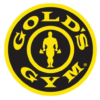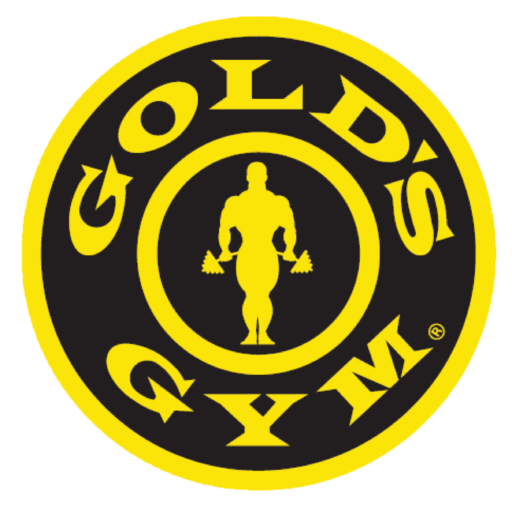Sleep and exercise are two of the most important elements in maintaining overall health and well-being. But did you know they’re not just separate entities? In fact, the connection between sleep and exercise performance is so deep. Sleep quality directly influences how well you perform during exercise, and vice versa.
Whether you’re an athlete or just someone trying to stay in shape, understanding how these two factors interplay can make all the difference. In this article, we’ll explore the science behind sleep and its impact on exercise performance and offer tips on optimizing your sleep for better results.
The Science Behind Sleep
Sleep is not a uniform state of rest. It consists of two stages: Rapid eye movement (REM) sleep and Non-REM (NREM) sleep. Each stage plays a distinct role in physical and mental recovery. Understanding these stages can help us appreciate how sleep supports exercise performance.
REM Sleep (Rapid Eye Movement Sleep)
REM (Rapid Eye Movement) sleep is associated with brain activity, memory consolidation, and emotional processing. It plays a vital role in mental resilience, decision-making, and focus—qualities that are essential for pushing through tough workouts.
Non-REM Sleep (Non-Rapid Eye Movement Sleep)
Non- REM phase of sleep is considered the quiet or restful phase. This is when a person’s brain activity, breathing, and heart rate slow down, body temperature drops, muscles relax, and eye movements stop. Non-REM sleep consists of three stages:
- Stage 1: Your eyes are closed, but it’s easy to wake you up. This phase may last for 5-10 minutes.
- Stage 2: You are in light sleep, but it’s deeper than stage 1. Your body is getting ready for deep sleep. This can last for 10–25 minutes.
- Stage 3: This is the deep sleep stage. It’s harder to rouse you during this stage. In adults, stage 3 makes up about 25% of total sleep time.
During deep non-REM sleep (Stage 3), the body focuses on tissue repair, muscle growth, and immune function.
Why Sleep is Essential for Exercise Performance
Proper sleep directly influences physical and mental performance in several ways:
The Role of Sleep in Recovery
Sleep provides the body with an opportunity to repair damaged tissues, synthesize proteins, and rebuild muscle fibers torn during intense workouts.
Hormonal Regulation During Sleep
Key hormones, including testosterone and HGH, are released predominantly during deep sleep. These hormones are essential for muscle growth, repair, and overall workout performance.
Cognitive Benefits of Restful Sleep
Quality sleep enhances focus, decision-making, and reaction time, all of which are critical for activities requiring precision and coordination.
Optimal Sleep Duration for Different Fitness Goals
The ideal sleep duration can vary based on your fitness objectives:
Strength Training
For muscle building and recovery, 7-9 hours of quality sleep is recommended. This ensures sufficient release of growth hormones and allows muscle tissues to repair effectively.
Endurance Athletes
Endurance athletes may require even more sleep, around 8-10 hours, to recover from prolonged physical stress and maintain energy levels.
General Fitness
For those engaging in moderate exercise, 7-8 hours of uninterrupted sleep are typically sufficient.
The Impact of Poor Sleep on Exercise Performance
Insufficient sleep can disrupt your fitness efforts and hinder progress in various ways:
Reduced Energy Levels
Lack of sleep results in low glycogen stores and decreased endurance, leaving you feeling fatigued during workouts.
Impaired Muscle Recovery
Without adequate sleep, the body’s ability to repair and rebuild muscles diminishes, leading to prolonged soreness and increased injury risk.
Mood Swings
Sleep deprivation affects mood-regulating hormones, causing irritability, anxiety, and decreased motivation.
Diminished Motivation and Mental Resilience
Mental toughness is often as crucial as physical strength, and poor sleep can impair focus, determination, and resilience.
Tips for Optimizing Sleep and Exercise Performance
Improving sleep quality doesn’t have to be complicated. Here are actionable tips to enhance your rest:
- Create a Sleep Routine
A consistent sleep schedule is key to peak performance. Going to bed and waking up around the same time each day, even on weekends, aligns your body’s natural sleep-wake cycle.
Many fitness centers offer a variety of classes and programs designed to help you establish a consistent exercise schedule, which can naturally improve your sleep-wake cycle.
- Limit Screen Time
The blue light emitted from devices like smartphones, tablets, and laptops can interfere with your body’s production of melatonin, a hormone essential for sleep. Try to avoid screens at least an hour before bedtime or use blue light filters if you must use your devices. Instead, opt for a relaxing activity like reading a physical book or journaling.
- Mindful Nutrition
What you eat and drink in the hours leading up to bedtime can significantly impact your sleep quality. Avoid heavy, greasy, or spicy meals, as they can cause discomfort or indigestion. Consider consulting with a registered dietitian or nutritionist to create a meal plan that promotes better sleep and exercise performance.
- Relaxation Techniques
Relaxation techniques like meditation and gentle stretching, often incorporated into fitness classes like yoga and Pilates, can prepare your body for sleep.
Additionally, utilizing steam rooms or saunas can further enhance relaxation by reducing muscle tension, improving circulation, and promoting a sense of calm before bedtime.
- Balancing Sleep, Exercise, and Busy Schedule
Finding harmony between sleep and exercise can be challenging, especially with packed daily schedules. Here are some strategies:
- Prioritize Sleep Over Late-Night Workouts
Sacrificing sleep for a late-night workout may do more harm than good.
- Plan Morning vs. Evening Workouts
Find a workout time that aligns with your energy levels and doesn’t disrupt your sleep pattern.
- Power Naps
Short naps (15-30 minutes) can help boost alertness and recovery during the day.
Common Sleep Disorders and Their Impact on Fitness
Sleep disorders can have severe consequences for athletes and fitness enthusiasts.
Insomnia and Its Effects on Exercise
Chronic insomnia can lead to fatigue, decreased focus, and a significant drop in physical performance.
Sleep Apnea in Active Individuals
Sleep apnea disrupts normal sleep patterns and reduces oxygen supply, affecting endurance and recovery.
Final Thoughts on Sleep and Exercise Synergy
The relationship between sleep and exercise is a two-way street. Quality sleep enhances exercise performance, while regular exercise promotes better sleep. Prioritizing rest is not a sign of weakness but a strategic move toward better health, improved performance, and faster recovery.
Make sleep a key part of your fitness plan and experience improved energy, focus, and endurance. Join Gold Gym Nepal and build a lifestyle that prioritizes health, recovery, and long-term wellness.
Still have Questions!! Consult With Our Experienced Trainers
Book a consultation with our experienced personal trainer today and get a customized plan that fits your goals and lifestyle. Whether you’re a beginner or looking to take your workouts to the next level, we’re here to guide you every step of the way.
FAQs
How many hours of sleep do athletes need?
Athletes typically need 7-10 hours of quality sleep per night.
Can exercise improve sleep quality?
Yes, regular physical activity can help improve sleep patterns and reduce insomnia symptoms.
Is it better to work out in the morning or evening for better sleep?
It depends on personal preference, but exercising too close to bedtime may disrupt sleep for some people.
How does poor sleep affect muscle growth?
Poor sleep reduces hormone production, impairing muscle recovery and growth.


